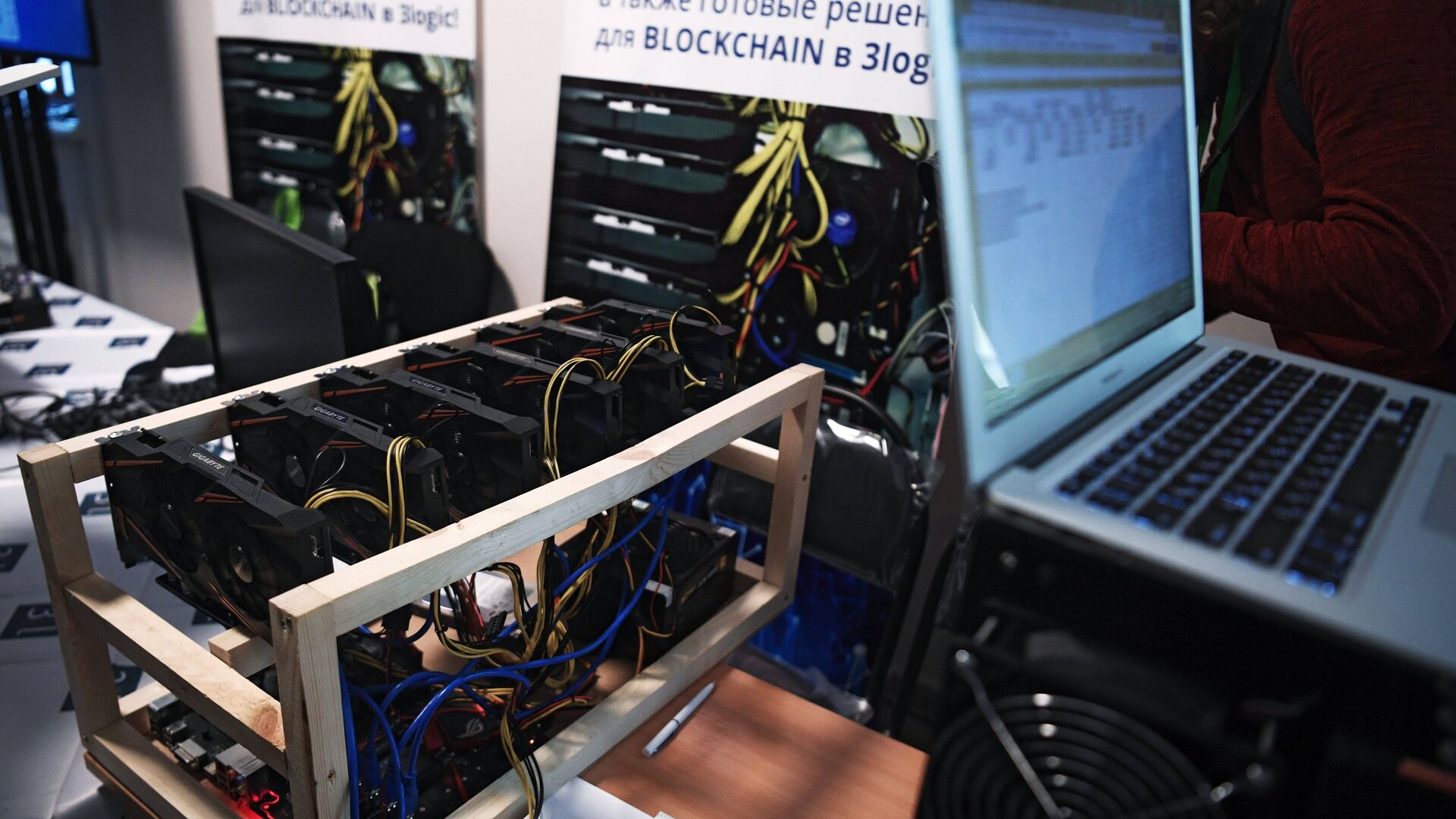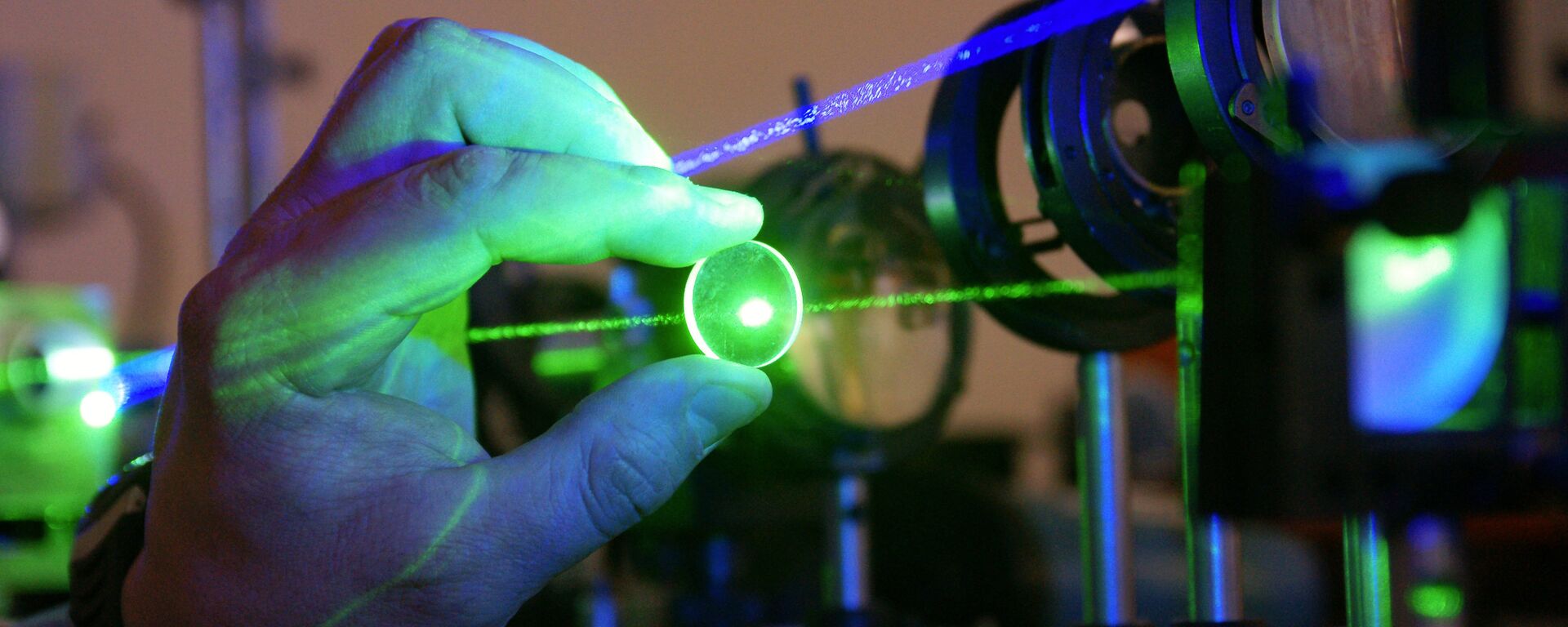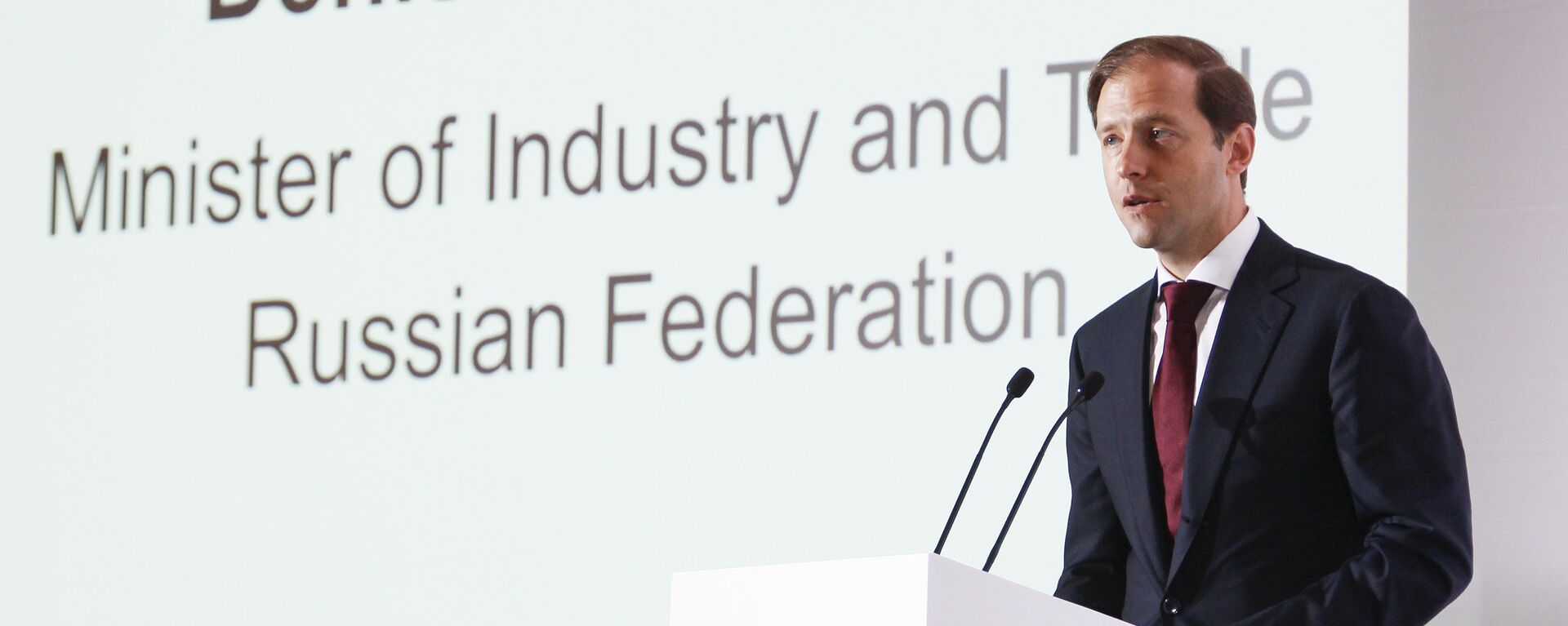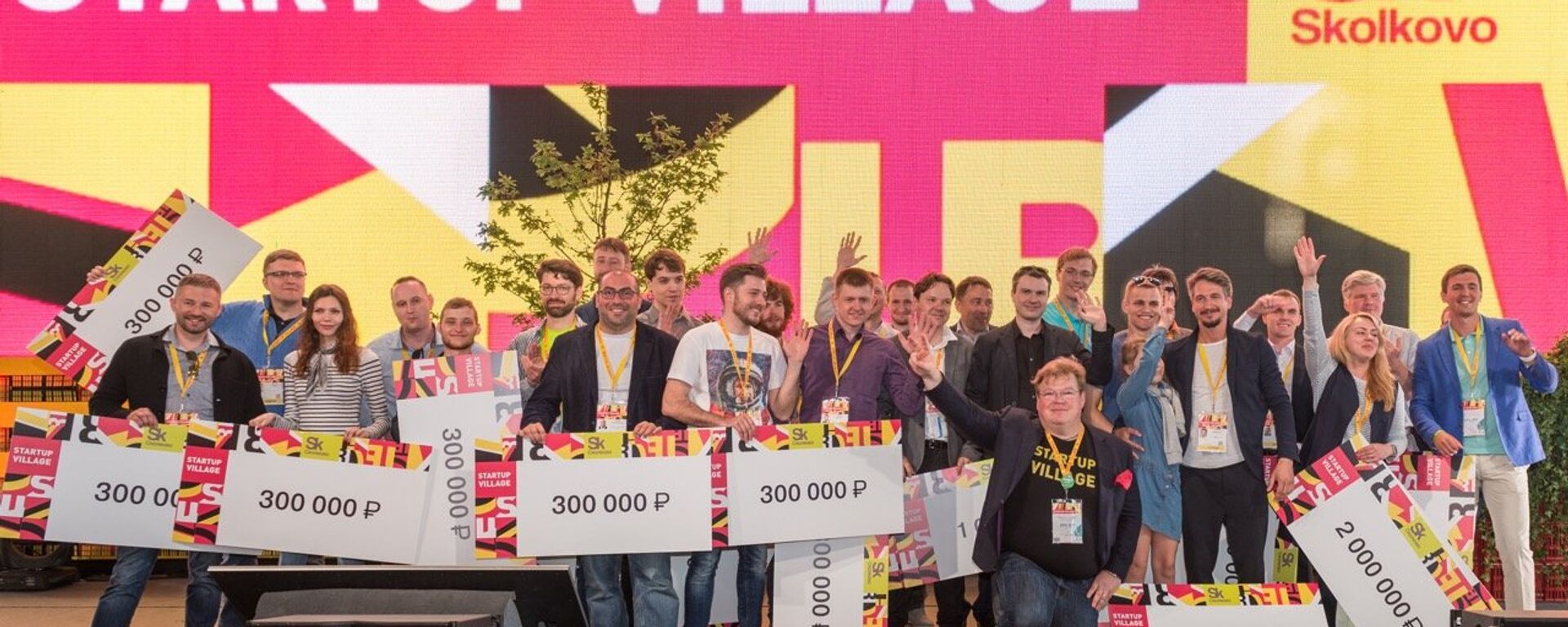https://sputnikglobe.com/20230818/how-does-russias-it-sector-contribute-to-its-gdp-growth-1112652950.html
How Does Russia's IT Sector Contribute to Its GDP Growth?
How Does Russia's IT Sector Contribute to Its GDP Growth?
Sputnik International
With a rapidly growing IT ecosystem, ongoing market expansion, and strategic government support, Russia's tech corporations are well-positioned to reshape the local IT market.
2023-08-18T09:00+0000
2023-08-18T09:00+0000
2023-08-18T09:00+0000
economy
newsfeed
opinion
science & tech
china
moscow
russia
skolkovo
sputnik
higher school of economics
https://cdn1.img.sputnikglobe.com/img/106030/90/1060309063_0:170:3036:1878_1920x0_80_0_0_93600940a4223e4cef4a87a007794ff9.jpg
In the 21st century, technology is important in the race for control and influence and meeting national economic aspirations because it supports economic growth by stimulating creativity, productivity, and access to international markets. The worldwide digital revolution has triggered a radical metamorphosis of the world's social, economic, and technological relations by transforming social connectivity, economic advancement, global supply chains, information access, cultural exchanges, etc.As the growth of information, communication, and internet technologies became widespread, development projects related to it were rapid. This had a ripple effect on Russia, one of the world's technologically advanced nations that adopted ICT advancements in key sectors of its economy.Around a decade ago, Russia's information technology sector began evolving and played a significant role in its economy, contributing over a third of the GDP (around $47.8 billion) from 2015 to 2021, which was about 3.2 percent in 2020. In 2021, the technology and communication industry received more than $10.2 billion in fixed capital investment, a notable increase from the previous year's $8.6 million.Sputnik highlights the IT ecosystem in Russia, new developments in the industry, how Russia’s tech sector contributes to its GDP, and much more.What is Russia’s IT ecosystem?A typical Russian Information Technology ecosystem refers to an intricate and intertwined web of various entities, components, technologies, and stakeholders that collectively contribute to the functioning and advancement of the ICT industry. This ecosystem encompasses various elements, including hardware, software, services, infrastructure, regulations, organizations, and users.As tech advances yield innovative solutions, it has led to economic growth, expansion of local and international markets, labor mobility, etc. Subsequently, the Russian IT market comprises state, financial, and non-financial companies.According to experts, IT ecosystems in Russia are categorized into 2:How is the IT Industry in Russia?Research results from the Institute for Statistical Research and Economics of Knowledge (ISSEK) of the Higher School of Economics, Moscow, show the following:What are New Developments in Russia’s IT Industry?Though Russia’s tech industry was quite feverish due to the departure of Western IT companies, it provided a window of opportunity for local tech companies to fill in the gap. Hence, the following trends in the market:What is the Market Size of Russia’s IT industry?Industry insiders say Russia's tech sector’s market size was $31.2 billion in 2021. Russian tech firms saw their revenues increase per annum between 2016 and 2021. In 2021, they earned $32.6 billion, the second-highest amount during this time. The most they earned was $33 billion in 2013. Revenue is anticipated annually from 2023 - 2028 at about 8.62 percent, yielding a market volume of $14 billion.Reports show that this year, Russian IT outsourcing dominates the market with a projected volume of $3 billion, while revenue in the IT services market is expected to hit $9 billion.What are the Segments of Russia's IT Sector?How Much Does Russia’s Digital Economy Contribute to its GDP?According to reports, in 2021, the RuNet (Russian internet) added about $100.5 billion to the Russian GDP, 42 percent higher than in 2020.However, in 2022, the Russian Association of Electronic Communications (RAEC) reported that marketing and advert contributed 24 percent ($4.6 billion), e-commerce added 44 percent ($91.5 billion), and infrastructure amounted to 34 percent ($2.2 billion).In 2021, the amount spent on online travel services increased to approximately $3.73 billion, reflecting a 5-percent growth. Sales of various services through the Internet also experienced substantial growth, reaching around $13.33 billion, which marked a 28-percent increase. The market for electronic payment services witnessed a significant surge of 42 percent, reaching a total value of approximately $26.95 billion. Additionally, the online trading market known as S2S reached a value of approximately $15.87 billion.Source: TAdviser100. (Note: The provided amounts from Russian Rubles (RUB) to US Dollars (USD) were converted using the official exchange rate of 1 USD to 60.88 RUB by the Central Bank of the Russian Federation as of December 1, 2022. Exchange rates can fluctuate, and this conversion is accurate as of the specified date. Only Rostec and OCS did not have their figures converted because the companies provided them in USD.)Start-up Programs in Russia as Powerhouses of GrowthRussia launched the Russia Digital Economy Program in July 2017, allocating a yearly budget of $1.8 billion until 2025. The program aims to rectify lags that are obstructing Russia's advancement in the global digital economy.Russia's dynamic start-up program has provided a strong basis for its technology and innovation ecosystem to flourish.The government is vigorously bolstering tech infrastructure, evident through over 50 science and technology parks founded nationwide. These parks promote local and foreign high-tech companies to localize their research, development, production, and application of advanced technologies, fostering a thriving technology and innovation environment.The Russian government has heavily invested in enhancing and enlarging the Skolkovo Innovation Centre in Moscow. This prominent technopark is one of Eastern Europe's largest and hosts over 2,000 start-ups. Skolkovo is a cutting-edge, advanced technology hub, gaining popularity among venture capitalists interested in sectors like bio-medicine, energy efficiency and strategic areas such as computer technology, nuclear sciences, and space technology.Numerous Skolkovo residents have succeeded by launching products and projects in collaboration with partners in China. For instance, Optogard Nanotech is working with Shandong Trustpipe Industry to develop laser-plasma technology for improving metals and alloys in pipe production within the Shandong province of China.Technopolis Moscow is a prominent innovation hub in the Russian capital, housing around 80 advanced technology companies. Notable occupants include Dutch Mapper Lithography - micro-electro-mechanical systems (MEMs) producer and Schneider Electric - European energy management leader.The Science Park of St. Petersburg plays a crucial role in the city's innovation strategy, facilitating the entire innovation process from start-ups to industry incubation and cluster development. It serves as a vital tool for advancing the city's innovation agenda.Building on its achievements, the Science Park of St. Petersburg has established additional resources like a Cluster Development Centre, an Engineering Centre (API), and a Prototype Development Centre. These facilities cater to the needs of their occupants across the development spectrum. Successful ventures like FreshOffice, a cloud-based business management solutions provider, have expanded internationally, including opening offices in ASEAN countries.Is Russia's New Tech Order Here to Stay?According to some tech industry sources, the answer is unequivocally affirmative.Notable IT developers from Russia expressed the view that the departure of foreign tech giants of Western origin was a catalyst for local IT firms to devise their own products and services for the market - a boost for the Russian economy.The experts also argued that Russian tech corporations possessed the wherewithal not only to regain domestic market dominance but also to establish significant influence in international IT markets like the Middle East, South America, and Southeast Asia.Furthermore, emphasis was placed on the need for the Russian government and IT companies to determine whether their aim was merely to supersede or support the software of parted Western businesses or if they envisage to emerge as leaders in a future tech era.With several programs and government and private sector support, Russia has demonstrated its capability to lead in the field of information technology and to extend technological prowess to other nations.
https://sputnikglobe.com/20230710/russias-it-brain-gain-professionals-return-home-reversing-long-time-trend-1111786475.html
https://sputnikglobe.com/20230613/russia-states-global-leadership-in-swathe-of-industries---deputy-prime-minister-manturov-1111103670.html
https://sputnikglobe.com/20160604/skolkovo-research-development-agreements-1040792405.html
https://sputnikglobe.com/20150421/1021158613.html
china
moscow
russia
Sputnik International
feedback@sputniknews.com
+74956456601
MIA „Rossiya Segodnya“
2023
Sputnik International
feedback@sputniknews.com
+74956456601
MIA „Rossiya Segodnya“
News
en_EN
Sputnik International
feedback@sputniknews.com
+74956456601
MIA „Rossiya Segodnya“
Sputnik International
feedback@sputniknews.com
+74956456601
MIA „Rossiya Segodnya“
russia, technology industry, it ecosystem, digital revolution, economic aspirations, it sector contribution, gross domestic product, fixed capital investment, technology and communication industry, it brain gain, it ecosystems, solution-based ecosystem, transaction-based ecosystem, it industry growth, ict sector share, sales growth, employee increase, fixed assets investment, new developments in it industry, customer return, new vendors, it infrastructure localization, government tax incentives, proliferation of new businesses, revenue growth, remuneration of it specialists, tax accrual, market size of russia's it industry, it services, hardware, software, data protection, industry segmentation, russia's digital economy, gdp contribution, start-up programs in russia, technology and innovation ecosystem, skolkovo innovation centre, technopolis moscow, science park of st. petersburg, russia's new tech order.
russia, technology industry, it ecosystem, digital revolution, economic aspirations, it sector contribution, gross domestic product, fixed capital investment, technology and communication industry, it brain gain, it ecosystems, solution-based ecosystem, transaction-based ecosystem, it industry growth, ict sector share, sales growth, employee increase, fixed assets investment, new developments in it industry, customer return, new vendors, it infrastructure localization, government tax incentives, proliferation of new businesses, revenue growth, remuneration of it specialists, tax accrual, market size of russia's it industry, it services, hardware, software, data protection, industry segmentation, russia's digital economy, gdp contribution, start-up programs in russia, technology and innovation ecosystem, skolkovo innovation centre, technopolis moscow, science park of st. petersburg, russia's new tech order.
In the 21st century, technology is important in the race for control and influence and meeting national economic aspirations because it supports economic growth by stimulating creativity, productivity, and access to international markets.
The worldwide digital revolution has triggered a radical metamorphosis of the world's social, economic, and technological relations by transforming social connectivity, economic advancement, global supply chains, information access, cultural exchanges, etc.
As the growth of information, communication, and internet technologies became widespread, development projects related to it were rapid. This had a ripple effect on Russia, one of the world's technologically advanced nations that adopted ICT advancements in key sectors of its economy.
Around a decade ago, Russia's information technology sector began evolving and played a significant role in its economy, contributing over a third of the GDP (around $47.8 billion) from 2015 to 2021, which was about 3.2 percent in 2020. In 2021, the technology and communication industry received more than $10.2 billion in
fixed capital investment, a notable increase from the previous year's $8.6 million.
Sputnik highlights the IT ecosystem in Russia, new developments in the industry, how Russia’s tech sector contributes to its GDP, and much more.
What is Russia’s IT ecosystem?
A typical Russian Information Technology ecosystem refers to an intricate and intertwined web of various entities, components, technologies, and stakeholders that collectively contribute to the functioning and advancement of the ICT industry. This ecosystem encompasses various elements, including hardware, software, services, infrastructure, regulations, organizations, and users.
As tech advances yield innovative solutions, it has led to economic growth, expansion of local and international markets, labor mobility, etc. Subsequently, the Russian IT market comprises state, financial, and non-financial companies.
According to experts, IT ecosystems in Russia are categorized into 2:
A
solution-based ecosystem that involves participants developing a product for consumers with the involvement of several companies.
A
transaction-based ecosystem connects all users and players on the same digital product - usually service-oriented.
How is the IT Industry in Russia?
Research
results from the Institute for Statistical Research and Economics of Knowledge (ISSEK) of the Higher School of Economics, Moscow, show the following:
In Q1 2023, the ICT sector's share of the total volume of goods, services, and projects rose from 3.5 to 4.1 percent. All the businesses in this sector combined produced them for $13.4 billion. This is 3.4 percent more than they earned in the first quarter of 2022.
Sales of products, services, and projects showed good growth across important parts of the IT industry, which recorded a 6.1 percent boost, ICT production jumped by 4.7 percent, and the telecommunications sector rose by 5.7 percent.
Employees in ICT sector companies have increased over the past 6 months. In Q1 2023, 49,400 more people were employed in this sector compared to the last Q4 2022 - a 3.7 percent leap.
The amount of money put into fixed assets grew by 10.7 percent compared to Q1 2022.
What are New Developments in Russia’s IT Industry?
Though Russia’s tech industry was quite feverish due to the departure of Western IT companies, it provided a window of opportunity for local tech companies to fill in the gap. Hence, the following trends in the market:
Return of customers to large integrators - Numerous companies updated and adjusted their IT systems to match the new market conditions. This resulted in a surge in demand for local products, leading to more contracts and growth in this specific market area.
Arrival of new vendors and solutions - In 2022, the cloud business experienced a faster growth rate of 30-35 percent compared to the previous range of 20-25 percent. Many companies had to swiftly create new IT systems and find domestic alternatives to foreign software. For example for
Astra Linux special-purpose Operating System developed by RusBITech-Astra was adopted by Russian state organizations, federal and regional executive authorities, as well as educational institutions. Also,
My Office software for office and other administrative functions developed by New Cloud Technologies,
TrueConf a communication software developed by TrueConf became an alternative to Zoom, Cisco Webex, Microsoft Teams, etc.
Localization of IT infrastructure - The requirement to adapt IT systems locally and build proprietary products drove up the demand for custom development in 2022. This demand is expected to continue growing in 2023. Regarding technology, there's a clear shift towards middleware solutions such as integration buses, API gateways, and microservice platforms.
Government’s tax incentives - Government
support measures are contributing to the growth of the IT industry. Accredited IT companies enjoy benefits like no income tax until the end of 2024 (0 instead of 3 percent), an increased depreciation factor for certain properties starting in 2023, and lower employee insurance contribution rates at 7.6 percent.
Proliferation of new businesses - From January to April 2023, around 1,000 entrepreneurs and limited liability firms in the IT industry incorporated their businesses. This demonsrated an increase that was 17 percent higher than the same period in 2022.
Revenue growth - Russian tech enterprises earned roughly $29.9 billion as income, a marked increase that was 35.3 percent greater than the preceding year.
Appreciated remuneration of IT specialists - The salary of tech employees jumped 16.4 percent (approximately $187) in 2022 compared to 2021.
Tax accrual - In 2022, the tax revenues from IT corporations rose by more than 27 percent (by $1.1 billion), reaching an equivalent of approximately $6.6 billion. The total tax contribution was $26.4 billion.
What is the Market Size of Russia’s IT industry?
Industry insiders say Russia's tech sector’s market size was $31.2 billion in 2021. Russian tech firms saw their revenues increase per annum between 2016 and 2021. In 2021, they earned $32.6 billion, the second-highest amount during this time. The most they earned was $33 billion in 2013. Revenue is anticipated annually from 2023 - 2028 at about 8.62 percent, yielding a market volume of $14 billion.
Reports show that this year, Russian IT outsourcing dominates the market with a projected volume of $3 billion, while revenue in the IT services market is expected to hit $9 billion.
What are the Segments of Russia's IT Sector?
IT services - outsourcing and integrated print management services.
Hardware - production of ICT equipment in Russia, computer technology, user devices, peripherals, and accessories.
Software - software development, control systems, basic software, cloud usage models, and specialized software.
Data protection - information security, cyber threat research services, software for information protection, information security equipment, means of protecting information from unauthorized access, biometric identification, access control to the enterprise's information resources, and public key infrastructure.
Industry segmentation - digitalization of healthcare in Russia, IT for Russia’s military-industrial complex, the market of banking informatization, and IT in the agro-industrial complex of Russia.
How Much Does Russia’s Digital Economy Contribute to its GDP?
According to reports, in 2021, the RuNet (Russian internet) added about $100.5 billion to the Russian GDP, 42 percent higher than in 2020.
However, in 2022, the Russian Association of Electronic Communications (RAEC) reported that marketing and advert contributed 24 percent ($4.6 billion), e-commerce added 44 percent ($91.5 billion), and infrastructure amounted to 34 percent ($2.2 billion).
In 2021, the amount spent on online travel services increased to approximately $3.73 billion, reflecting a 5-percent growth. Sales of various services through the Internet also experienced substantial growth, reaching around $13.33 billion, which marked a 28-percent increase. The market for electronic payment services witnessed a significant surge of 42 percent, reaching a total value of approximately $26.95 billion. Additionally, the online trading market known as S2S reached a value of approximately $15.87 billion.
TOP 10 Largest IT Companies in Russia
Company | 2022 Revenue with VAT (est. in billion $) | Activity Profile |
Rostec | ~$27.2 bln | Production of a wide range of products - from electronic components to optical equipment, complex software systems and systems. |
Marvel Distributions | ~$3.5 bln | Development and production of IT equipment, engineering, IT distribution. |
Group T1 | ~$2.7 bln | Development, delivery and implementation of software, technical support, cloud services, consulting. |
OCS | ~$2.7 bln | Distribution of ICT, software, household appliances, as well as distribution services (financial, technical, logistics, information, etc.). |
Rostelecom | ~$2,068 bln | Digital service provider with its own network infrastructure. |
MTS Digital | ~$2,065 bln | Platform, integration, development, modernization, adaptation. |
ICS Holding | ~$1,5 bln | Diversified IT holding. |
Softline Group | ~$1,2 bln | Import substitution, digital transformation, cybersecurity, clouds, proprietary services, software and hardware. |
1C | ~$1,083 bln | Development, distribution, publication and support of computer programs for business and home use. |
3Logic Group | ~$1,067 bln | Distribution, development and production of BT. |
Source: TAdviser100. (Note: The provided amounts from Russian Rubles (RUB) to US Dollars (USD) were converted using the official exchange rate of 1 USD to 60.88 RUB by the Central Bank of the Russian Federation as of December 1, 2022. Exchange rates can fluctuate, and this conversion is accurate as of the specified date. Only Rostec and OCS did not have their figures converted because the companies provided them in USD.)
Start-up Programs in Russia as Powerhouses of Growth
Russia launched the Russia Digital Economy Program in July 2017, allocating a yearly budget of $1.8 billion until 2025. The program aims to rectify lags that are obstructing Russia's advancement in the global digital economy.
Russia's dynamic start-up program has provided a strong basis for its technology and innovation ecosystem to flourish.
The government is vigorously bolstering tech infrastructure, evident through over 50 science and technology parks founded nationwide. These parks promote local and foreign high-tech companies to localize their research, development, production, and application of advanced technologies, fostering a thriving technology and innovation environment.
The Russian government has heavily invested in enhancing and enlarging the Skolkovo Innovation Centre in Moscow. This prominent technopark is one of Eastern Europe's largest and hosts over 2,000 start-ups. Skolkovo is a cutting-edge, advanced technology hub, gaining popularity among venture capitalists interested in sectors like bio-medicine, energy efficiency and strategic areas such as computer technology, nuclear sciences, and space technology.
Numerous Skolkovo residents have succeeded by launching products and projects in collaboration with partners in China. For instance,
Optogard Nanotech is working with Shandong Trustpipe Industry to develop laser-plasma technology for
improving metals and alloys in pipe production within the Shandong province of China.
Technopolis Moscow is a prominent innovation hub in the Russian capital, housing around 80 advanced technology companies. Notable occupants include Dutch Mapper Lithography - micro-electro-mechanical systems (MEMs) producer and Schneider Electric - European energy management leader.
The Science Park of St. Petersburg plays a crucial role in the city's innovation strategy, facilitating the entire innovation process from start-ups to industry incubation and cluster development. It serves as a vital tool for advancing the city's innovation agenda.
Building on its achievements, the Science Park of St. Petersburg has established additional resources like a Cluster Development Centre, an Engineering Centre (API), and a Prototype Development Centre. These facilities cater to the needs of their occupants across the development spectrum. Successful ventures like FreshOffice, a cloud-based business management solutions provider, have expanded internationally, including opening offices in ASEAN countries.
Is Russia's New Tech Order Here to Stay?
According to some tech industry sources, the answer is unequivocally affirmative.
Notable IT developers from Russia expressed the view that the departure of foreign tech giants of Western origin was a catalyst for local IT firms to devise their own products and services for the market - a boost for the Russian economy.
The experts also argued that Russian tech corporations possessed the wherewithal not only to regain domestic market dominance but also to establish significant influence in international IT markets like the Middle East, South America, and Southeast Asia.
Furthermore, emphasis was placed on the need for the Russian government and IT companies to determine whether their aim was merely to supersede or support the software of parted Western businesses or if they envisage to emerge as leaders in a future tech era.
With several programs and government and private sector support, Russia has demonstrated its capability to lead in the field of information technology and to extend technological prowess to other nations.






